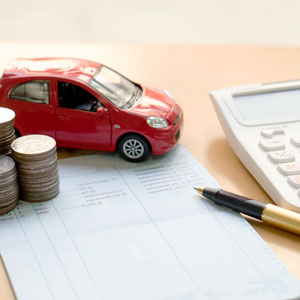Call Now To Learn More About Your Legal Rights
(479) 750-2334(Calls Answered 24/7) OR Text Us:
(479) 358-1998
When a car is declared a total loss because the cost of repairs exceeds its value, the insurance company owes you the fair market value of the car. In such cases, they typically present two offers:
This is the complete offer where the insurance company takes possession of your wrecked car in what is essentially a forced sale. They pay you the fair market value of the car before the accident, and in return, they acquire the damaged vehicle. Value assessment in an auto accident claim can be complicated and nuanced, as you’ll see.
The second offer includes a deduction for the salvage value of your car. After buying the wrecked car from you, the insurance company sells it to a salvage yard. The salvage yard pays a certain amount (salvage value) because even though the car is damaged, it may have usable parts and components like wheels that can be reused or metal that can be melted down. Nationwide databases provide information on the salvage value of individual cars, and the deduction is made based on this data.
Clients sometimes choose to keep their damaged car, especially if it holds sentimental value or is still drivable with some repairs. In such cases, the insurance deducts the salvage value of the vehicle, and the settlement is smaller since the insurance company doesn’t get to sell the car to a salvage yard. The car will then have a salvage title, indicating to future buyers that it was previously wrecked and totaled.. This choice is based on individual preferences and circumstances, and we assist clients in making informed decisions about what option aligns best with their needs.
If your car is totaled, has not been paid off, and you have a loan against it, having gap coverage will put you in the best position possible. Gap coverage covers the difference between the fair market value of the car and the remaining loan amount. If you have gap coverage, we can assist you in opening a claim and provide the necessary documents to ensure that the coverage extends to pay off the loan.
The insurance company is only obligated to pay you the fair market value of your vehicle, so if you do not have gap coverage, you may very well find yourself in a difficult situation to navigate, leaving you responsible for the remaining balance of the loan.
While we try to help offset this loss on the bodily injury side, there’s no legal mechanism that allows us to compel the insurance company to cover the outstanding loan amount. However, during negotiations, we emphasize to the insurance company that they owe additional monies under the property damage side in the hope that this will lead to a more favorable overall settlement.
If your vehicle is repairable and not deemed a total loss, how to best work with the insurance company for the repairs can vary. This is because each insurance company has its own processes, and they may change over time. Nevertheless, here’s a general outline of what you can expect if you partner with us:
We reach out to both the at-fault insurance company and your own insurance company to report the accident. The aim here is to get them to initiate an investigation and determine how they’d like to handle things.
The insurance company may then send an adjuster to assess the damage, either by meeting you at your location and taking pictures themselves or encouraging you to download an app to upload photos yourself. Some may require you to get a paper estimate and submit it to them.
Once the preliminary damage assessment is completed, we start coordinating with the insurance company to choose a repair shop. The shop should have a working relationship with the insurance company, facilitating direct communication for payment and the submission of supplemental reports for additional damages discovered during the repair process.
After selecting a repair shop, you can schedule appointments to turn in your car for repairs and get a rental car if needed.
Throughout this process, it’s important to stay in regular communication with both the insurance company and the repair shop to ensure a smooth and efficient resolution of the property damage claim.
For more information on Value Assessment In An Auto Accident Claim, an initial consultation is your next best step. Get the information and legal answers you are seeking by calling (479) 750-2334 today.